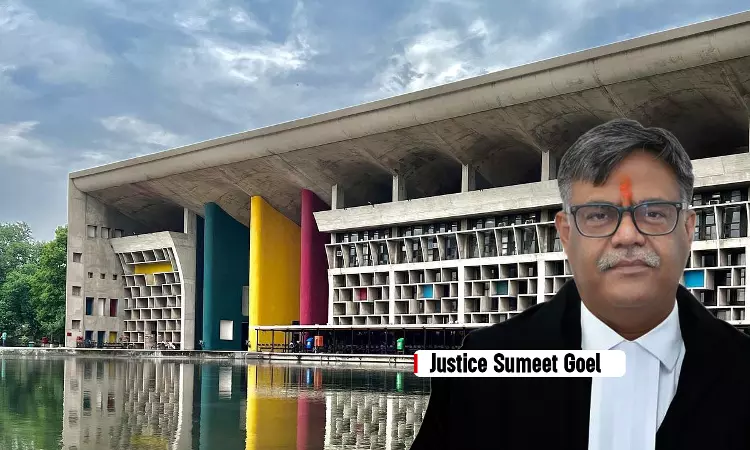- Home
- /
- High Courts
- /
- Punjab and Haryana High Court
- /
- Punjab & Haryana High Court...
Punjab & Haryana High Court Explains When Accused Can Directly Approach HC For Bail
Aiman J. Chishti
20 Aug 2025 7:34 PM IST
The Punjab and Haryana High Court has explained that an accused person can directly approach the High Court for bail only under "exceptional circumstances."Justice Sumeet Goel elucidated, "There may be multitude of factors which may result in exceptional circumstance(s) enabling an accused to file, maintain and pursue his regular plea before the High Court straightaway. For instance;...
The Punjab and Haryana High Court has explained that an accused person can directly approach the High Court for bail only under "exceptional circumstances."
Justice Sumeet Goel elucidated, "There may be multitude of factors which may result in exceptional circumstance(s) enabling an accused to file, maintain and pursue his regular plea before the High Court straightaway. For instance; the incident/crime involved may have caused tangible circumstances, adverse to the petitioner-accused in approaching the Sessions Court; there may be perceptible difficulty for the petitioner-accused to approach the Sessions Court vis.-a-vis. the High Court; the plea may be involving complicated question(s) of law etc. Needless to say that these factors are merely illustrative in nature and not exhaustive."
The Court further added that, it was neither conceivable nor desirable to lay down any exhaustive set of guidelines to govern the exercise of this jurisdiction, however alluring this aspect may be.
"Such exercise of power would definitely be dependent upon the factual matrix of the case which the High Court is seisin of."
The Court summarised the the following principles:
Section 439 Cr.P.C./Section 483 BNSS, on its plain terms, does not mandate or require that an accused must first approach the Sessions Court before applying to the High Court for grant of Regular Bail.
Notwithstanding the existence of concurrent jurisdiction with the High Court and the Sessions Court for grant of Regular bail under Section 439 Cr.P.C./Section 483 BNSS, there is no indefeasible right vested in the accused to approach the High Court directly/straightaway for grant of regular bail bypassing the forum of Sessions Court.
An accused ought to ordinarily approach Sessions Court, in the first instance, when making a plea for regular bail. Exceptional circumstances must necessarily be shown to exist in justification of the High Court being approached directly/straightaway, without the avenue as available before the Sessions Court, being exhausted.
Whether a particular case involves such exceptional circumstances or not, depends upon the determination of the factual matrix of an individual case, which is receiving consideration by the High Court, in accordance with its judicial discretion. It is neither axiomatic nor fathomable to chronicle exceptional circumstances or compendiously postulate any exhaustive set of guidelines for exercise of such discretion by the High Court, for every case has its own peculiar factual matrix.
The Court explained that, there can be no determinative nay exhaustive definition of the expression “exceptional circumstances”—for this concept by itself is incapable of a rigid definition. Its very essence is imbued with ineluctable contextual fluidity –– rendering a universally prescriptive definition an exercise in jurisprudential futility.
"The nuanced contours of “exceptional circumstances” are inextricably woven into the singular factual matrix of each individual case, the prevailing social-legal milieu, and indeed, the conscientious and objectively informed discernment of the Court," it added.
Consequently, the formidable task of ascertaining what precisely constitutes “exceptional circumstances” in any given instance devolves unequivocally upon the sagacity and judicious application of mind of the Court, the bench opined.
Justice Goel quoted Benjamin N. Cardozo, –– "After all an arbitrator as a Judge, has to exercise a discretion informed by tradition, methodized by analogy, disciplined by system, and subordinated to “the primordial necessity of order in social life."
Mr. Vikram Chaudhri, Senior Advocate with Ms. Divya Bhagwan, Advocate for the petitioner.
Mr. Ravi Kamal Gupta, Retainer counsel for the CBI.
Mr. S.P. Jain, Senior Advocate with Ms. Meghna Malik, Advocate Mr. Gagandeep Jammu, Advocate for the complainant.
Title: Dr. Amit Kumar Singal v. Central Bureau of Investigation



